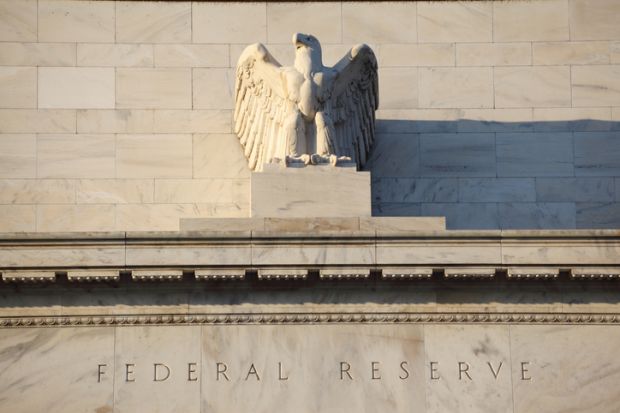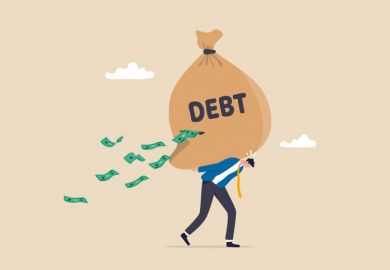The prospect of student debt being forgiven makes US college students more likely to choose government money over loans with apparently better repayment options, a federal assessment has concluded.
In a survey-driven analysis by the Federal Reserve Bank of Philadelphia, students who initially said they would prefer to pay back their loans as a share of their future income became more eager for a potentially more expensive government-issued loan if they saw a higher likelihood that their debt eventually would be forgiven, as has long been promised by the Biden administration.
“Offers of student loan cancellation may increase the amount of adverse selection present in federal loan programmes,” the authors said in summarising their work for the Philadelphia Fed, a regional entity of the nation’s central bank.
The study is the latest in an extended series of efforts by the Fed and others to decipher the educational, economic and political implications of Mr Biden’s much-touted promises to excuse large chunks of the $1.7 trillion (£1.3 trillion) that some 40 million Americans owe from their time in college.
In an election year, the question has fallen along clear partisan lines, with Republicans often arguing, as the new Fed study suggests, that there are important risks in Mr Biden’s forgiveness to date – $144 billion for 4 million borrowers – and his determined promises to deliver even more.
A leading congressional critic, Virginia Foxx, chair of the House education committee, has argued that the Biden approach “means less money in the pockets of hard-working taxpayers, more debt, and a continuing decline of an already failing student loan system”.
But even Biden-friendly student advocates have differed, with some agreeing that broad loan forgiveness does not solve rising tuition costs and could disproportionately help wealthier college graduates, and others noting that the outstanding debt is overwhelmingly held by lower-income and minority Americans.
Last June the US Supreme Court rejected Mr Biden’s plan to cancel nearly $400 billion in loans, at levels as high as $20,000 per borrower, with the conservative-heavy judicial panel insisting that it was too broad a use of his congressionally authorised right to selective forgiveness.
After months of Mr Biden offering the forgiveness in smaller chunks – usually tied to for-profit institutions accused of deceiving their students about their job prospects – about a dozen Republican-led states have now pushed back, filing a lawsuit in recent days that aims to test exactly how much leeway the president retains.
For the new Fed study, the team of academic and government researchers queried 2,776 students at an unnamed non-profit US university. The authors said that some students – especially those entering lower-paying careers – would fare better with an option that ties their loan repayment levels to their salaries.
But when the researchers told a subset of those students that they had a 20 per cent chance that the government would forgive $10,000 of the loan debt, it produced a 6 percentage-point gain in the number who reversed their initial willingness to try the income-based option.
Register to continue
Why register?
- Registration is free and only takes a moment
- Once registered, you can read 3 articles a month
- Sign up for our newsletter
Subscribe
Or subscribe for unlimited access to:
- Unlimited access to news, views, insights & reviews
- Digital editions
- Digital access to THE’s university and college rankings analysis
Already registered or a current subscriber? Login








